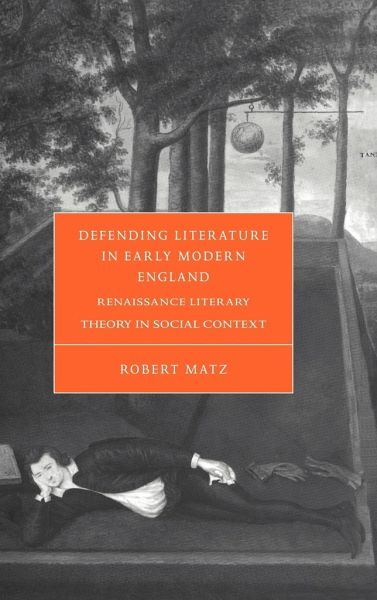
Defending Literature in Early Modern England
Renaissance Literary Theory in Social Context
Versandkostenfrei!
Versandfertig in 1-2 Wochen
103,99 €
inkl. MwSt.
Weitere Ausgaben:

PAYBACK Punkte
52 °P sammeln!
Why was literature so often defended and defined in early modern England in terms of its ability to provide the Horatian ideal of both profit and pleasure? This book, first published in 2000, analyses Renaissance literary theory in the context of social transformations of the period, focusing on conflicting ideas about gentility that emerged as the English aristocracy evolved from a feudal warrior class to a civil elite. Through close readings centered on works by Thomas Elyot, Philip Sidney and Edmund Spenser, Matz argues that literature attempted to mediate a complex set of contradictory soc...
Why was literature so often defended and defined in early modern England in terms of its ability to provide the Horatian ideal of both profit and pleasure? This book, first published in 2000, analyses Renaissance literary theory in the context of social transformations of the period, focusing on conflicting ideas about gentility that emerged as the English aristocracy evolved from a feudal warrior class to a civil elite. Through close readings centered on works by Thomas Elyot, Philip Sidney and Edmund Spenser, Matz argues that literature attempted to mediate a complex set of contradictory social expectations. His original study engages with important theoretical work such as Pierre Bourdieu's and offers a substantial critique of New Historicist theory. It challenges recent accounts of the power of Renaissance authorship, emphasizing the uncertain status of literature during this time of cultural change, and sheds light on why and how canonical works became canonical.




